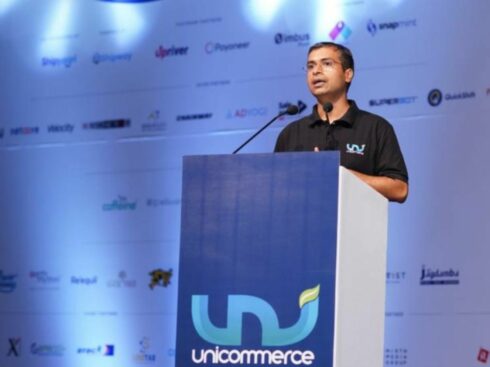
SUMMARY
To put it in simple words, Smart Contracts are computer protocols that can self-execute, self-enforce, self-verify, and self-constrain the performance of a contract. Typical smart contract implementation includes ICOs and Cryptokitties
What if you could reduce your loan rate, make it easier to update your contract, and ensure that you are able to collect any debt owed to you?
That and much more is the promise of smart contracts, a technology that is on the verge of being realistic.
Although smart contract hype has grown around Blockchain technology, the term smart contract was coined, 20 years ago, by Nick Szabo, a cryptographer. This term emphasized the goal of bringing the “highly evolved” practices of contract law and related business practices to the design of electronic commerce protocols between strangers on the Internet.
Szabo described smart contract as follows:
“A smart contract is a computerised transaction protocol that executes the terms of a contract. The general objectives are to satisfy common contractual conditions (such as payment terms, liens, confidentiality, and even enforcement), minimise exceptions both malicious and accidental, and minimise the need for trusted intermediaries. Related economic goals include lowering fraud loss, arbitrations and enforcement costs, and other transaction costs.”
To put it in simple words, Smart Contracts are computer protocols that can self-execute, self-enforce, self-verify, and self-constrain the performance of a contract.
Typical smart contract implementation includes ICOs and Cryptokitties[1].
Smart Contracts V/S Traditional Contracts
Smart contracts provide superior security against the traditional contracts and fraud prevention, reduced cost and immutability are associated with smart contracting.
Whilst it is uncertain that smart contracts will fully replace the traditional contracts, however, they can lessen the burden and the complexity of writing a new contract each time as the smart contract technology can be used to execute several terms of a contract between two parties automatically.
Smart contracts have certain advantages over traditional contracts:
- Certainty: Since the smart contracts are implemented by computer codes, there is no room for any ambiguous natural language as used in traditional contracts.
- Speed and Direct communication with the clients. Smart contracts eliminate the need for mediators and allows for clear, transparent, direct relationships with clients.
- Cost: The operating and clerical costs associated with the performance of smart contracts are low as there is almost nil human involvement at the performance stage.
- Fraud reduction and Recordkeeping. Smart contracts are kept in chronological order in a properly distributed blockchain network, wherein the outcome of such contracts is validated by everyone in that network and hence no one can publish and steal other people’s data.
- Immutable. A smart contract cannot be tampered with or broken.
Smart Contracts: Potential Impact On Business And The Sectors
Smart contracts are well suited for business activities that involve purchase or exchange of goods, services and rights, especially when frequent transactions occur among a network of parties and manual tasks are performed by counterparties for each transaction.
This application is a match for many financial services transactions (e.g., simplifying automatic dividend payments, stock splits and cryptographic signatures on stock certificates; streamlining over-the-counter agreements).
It also describes many supply chain, manufacturing and retail transactions. However, the technology is still in its infancy, so most use cases of smart contracts today consist of the transfer of cryptocurrency and recording/changing ownership of land or other assets.
Nevertheless, additional possibilities for future use abound, such as:
- Internet of Things Networks – There are areas where smart contracts intersect with other technologies, and the Internet of Things (IoT)[2] is one of them. A combination of smart contracts and IoT is powerful and can enable significant transformations across industries, paving the way for new distributed applications.
- Agriculture – IoT sensors reading the environment and automatically initiating activities such as irrigation or deployment of insecticide, based on programmed trigger values.
- Insurance – The insurance industry can leverage blockchain technology in a significant way to transform their processes, such as claim fraud detection and claim settlement.
- Real estate – Automatically locking a house (through an Internet-enabled lock) upon a tenant’s nonpayment of rent and then unlocking it when payment is submitted.
- Health care – Securing access to personal health records, enabling doctors to provide insurers proof of completed surgeries, supervising drugs and other supplies, and enabling secure and timely sharing of patient information for clinical trials and research.
- Banking – Banking might be the primary industry where smart contracts appear to be the most significant alternative to the traditional model of transactions. Smart contracts make payments as well as loans, and nearly all others financial operations literally automated.
- Supply Chain – Another area where smart contracts can provide real-time visibility is supply chains. Smart contracts ensure granular inventory tracking, benefitting supply chain financing as well as reducing the risk of theft and fraud.
- Legal Issues – The traditional model of resolving legal issues and certifying documents is also giving way to smart contracts. Smart contracts eliminate the need for notarization, offering not only an automated and unbiased but also a cost-efficient solution. io illustrates the concept of notarizing documents using the Ethereum blockchain.
The Future Of Smart Contracts
Despite various advantages and benefits of smart contracts and its use in the banking industry or the insurance industry, the blockchain technology is still in its nascent stage and it will take time to go mainstream.
Before using/embracing the technology, the legal and regulatory aspects in relation to the technology and smart contract needs to be looked into before it is recognized as a valid alternative to traditional contracts.
Smart contract platforms are intended to be more self-sufficient, self-governing, accurate and transparent.
The benefits of taking one’s business into the digital era are wide-reaching and fraud prevention, reduced cost and immutability of the smart contracts are unquestionably huge. Smart contracts can be used in all spheres of lives, from payment gateways to electricity bills etc.
This practically guarantees that smart contracts will be a foundation of the future global economy and a part of every person’s life.
Are We legally Equipped To Adopt Smart Contracts?
It is not clear whether blockchain based ‘smart contracts’ (self-executed instructions) meet the basic requirements of a contract under the (140-year-old) Indian Contract Act 1872.
Will rescission of such contracts be possible? How will actions automatically executed upon wrongful determination of an event (for example, transfer of money upon flawed analysis of rented car damage) be reversed in the absence of human volition?
On the blockchain technology, there is no single entity collecting the information. As such, how will data protection standards and corresponding liability for failure to ensure protection be adhered to? Lack of KYC or reporting standards is an issue.
Contract laws in India recognises all agreements as contracts if they are made by the free consent of parties competent to contract, for a lawful consideration and with a lawful object, and are not expressly declared to be void (Section 10 of the Indian Contract Act, 1872). Hence, considering the same, smart contracts are deemed to be contracts under the Indian Contract laws.
IT laws in India at present deal with data collection by ‘body corporates’ [Section 28A of the Information Technology Act, 2000 (“IT Act”)] and have set relevant standards of protection of such information.
Further, IT Act recognises and allows a contract formed through electronic means as valid and enforceable (Section 10 of the IT Act) and legally recognises digital signatures (Section 5 of the IT Act). Hence, considering the same, any contract duly authenticated via digital signature is legally valid and enforceable.
Further, as per the applicable provisions of the evidence laws in India, a contract authenticated by use of a valid digital signature obtained in consonance with the IT Act is admissible in the court of law (Section 65B of the Indian Evidence Act, 1872).
The idea of Blockchain based technology is that the data is stored with various participants – participants who may be situated around the globe. As such, jurisdictional questions like the determination of correct local law to govern participants become important.
To think of it, what law will govern a transaction between parties with varying levels of statutory IP protection? What happens in a case where the laws are conflicting with each other? How will the CPC and CrPC tackle such cases?
Further, even though smart contracts are extremely secure – it would be appreciated that smart contracts are practically immutable and irreversible.
In cases like that, how are courts going to reverse fraudulently initiated transactions? What happens to a transaction executed on a ‘smart contract’ when it is deemed unenforceable – how will the gains be restituted?
What Is The Way Forward?
Despite its disruptive implications, one cannot deny that the idea of a system without central oversight is a scary proposition. While touted as being the next big thing after the internet – the Blockchain based technology still lacks the form of data localisation or border control that the internet is subject to, in one way or the other.
As of today, while we can look forward to the adoption of smart contracts and the Blockchain based technology in various avenues – it is important that general awareness around the technology be propounded.
Humans are creatures of habit, and we naturally resist disruptions. But considering the benefits, adoption seems imminent. On the other hand, we feel that rushing legislation may not be ideal until the policy makers first understand the technology in its entirety.
[1] CryptoKitties is a blockchain based virtual game that allows players to purchase, collect, breed and sell various types of virtual cats.
[2] IoT is the network of physical devices, vehicles, home appliances, and other items embedded with electronics, software, sensors, actuators, and connectivity which enables these things to connect and exchange data, creating opportunities for more direct integration of the physical world into computer-based systems, resulting in efficiency improvements, economic benefits, and reduced human exertions.


























